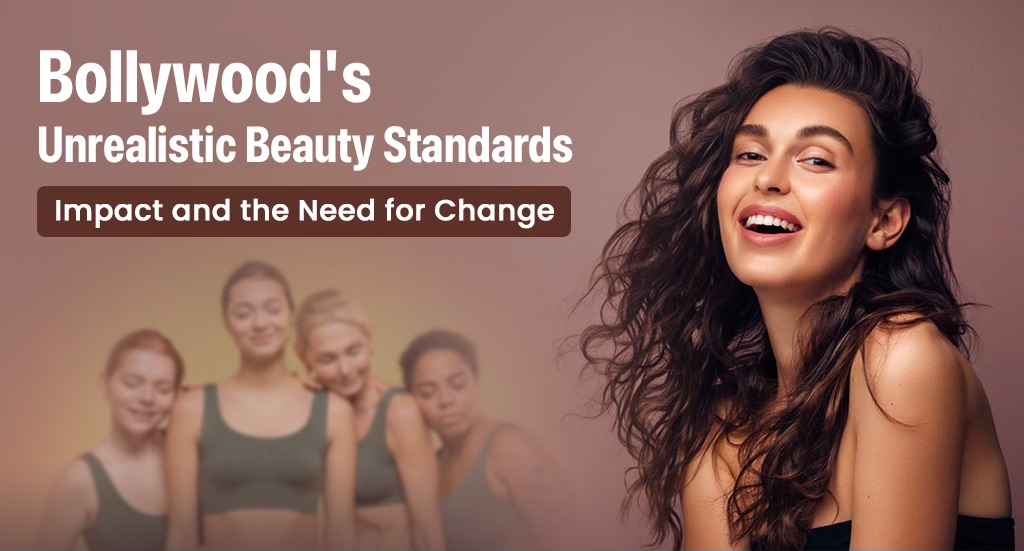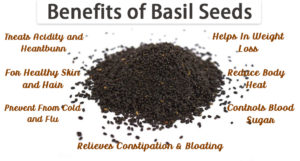We are boiling in pressure to look beautiful and perfect with the disgrace of admitting that we aren’t already. And the beauty industry legit feeds on this! The Indian beauty and wellness market is expected to reach $20 billion by the end of 2025, rising at a compound annual growth rate (CAGR) of 20.6%, according to a report by KPMG.
India’s population has long been greatly influenced by Bollywood in terms of culture. Bollywood’s portrayal of glamour and beauty has the power to shape how the general public views what is deemed desirable and attractive. The beauty and body standards set by Bollywood have a big impact on people’s self-esteem and perceptions of their bodies. Bollywood’s body image norms have increasingly drawn criticism for promoting an unattainable and unrealistic beauty ideal. From Kareena Kapoor’s glorified size zero in the film “Tashan” to obese female characters being traditionally mocked in Bollywood films, Bollywood history is replete with promoting unrealistic beauty standards and shaming those who don’t confirm to these.
Bollywood’s poster child has historically always been leading ladies, who were always made to appear fair— and over the years thin. Even the so-called stars of the “modern generation” have fallen prey to this, and we now frequently see airbrushed images of their lighter twins or actresses who have undergone melanin-correction surgeries.
Looking at their favourite celebrities, many people still struggle with body confidence because of the fixation on having the ideal physique that still remains. Teenagers are under tremendous pressure to maintain an ideal body image due to society’s unrealistic body standards, which reduces their self-esteem and encourages risky behaviour.
The definition of beauty in today’s society is no longer originality but rather a number on the scale or the measurement of the waist. People try to live up to these unrealistic standards of beauty, such as having a slim waist, flat stomach, and a bigger lip.
Prominent filmmaker Boney Kapoor recently spoke about his wife, late actress Sridevi’s obsessive commitment to her looks in an interview. He specifically mentioned her crash diets and avoidance of salt. Due to her desire to look thin, Sridevi went to extreme lengths, including crash diets with minimal salt to prevent water retention, which is believed to make the face look puffy. There are many examples stating how actresses fall prey to these crash diets, leading to nutritional deficiencies and sometimes severe diseases. In 2015, Telugu actress Aarthi Agarwal died of cardiac arrest reportedly triggered after a liposuction surgery. It was widely speculated back then that she had undergone the surgery to resurrect her career- she was battling obesity and depression at the time of her death and had may have associated the dwindling film offers with putting on weight.
The fat-phobia or un(fair) judgements are one of the biggest stigmas in the way of progress of our society. However, the main problem is that Bollywood has a huge audience and the potential to have an immediate impact on a lot of people, in addition to the negative impacts this fat-phobia has on the film industry. The more ridiculous body ideals it promotes, the more our nation is brainwashed into believing that it is an ideal worth sacrificing their sanity for. On the entire populace, it has the same negative effects. Bollywood once said that great power entails great responsibility.
From Arjun Kapoor, Sonakshi Sinha, Huma Qureshi, Ananya Pandey, and Parineeti Chopra to Vidya Balan, the celebs were mercilessly trolled by keyboard warriors for being fat or skinny.
The recently-released film Rocky Aur Rani Kit Prem Kahaani is like a whiff of fresh air among the films typically churned out by the film industry. In the movie, the lead actor (Ranveer Singh)’s sister, played by actress Anjali Anand, is obese and is spurned by suitors. However, she finally takes a stand and takes on her family for being apologetic about her obsesity.
In the race for perfect sculpted bodies, let’s move towards becoming healthy. Although comparing ourselves to images is natural and, in a sense, normal, two problems come to light when we attempt to “measure up.” First, we constantly measure ourselves against an impossible bar, which is a losing struggle. The models chosen to represent eye care goods have exceptionally beautiful eyes, those who represent hair care products have unrealistically thick and silky hair, etc. Second, no reader could possibly achieve the bar that publishers set because of the power of photoshop, which further enhances these excellent physical attributes.
Many of us nevertheless make an effort. Even though we might desire to imitate those pictures, in actuality, they tend to evoke more anxiety than inspiration. Worse worse, we believe the myth that achieving physical perfection will bring about true contentment.
So, love your body – it’s home to your soul! Focus on maintaining your fitness and taking care of your mental health.








